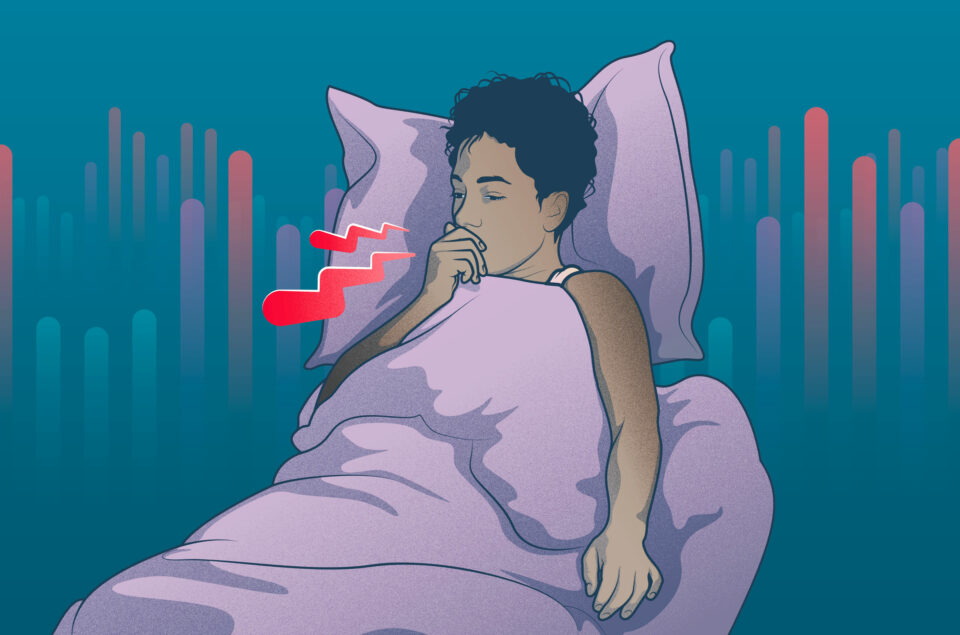Do you often find you’re tired, ready for bed, but your racing mind makes it difficult to fall asleep? Insomnia is the most common sleep disorder and according to the American Psychiatric Association it impacts one third of the adult population in the U.S. Many of our users report both difficulty falling asleep and falling back asleep in the middle of the night, resulting in poor sleep quality and sleep that isn’t particularly restful or restorative.
Sleep Cycle addresses this with the launch of the latest ‘Sleep Programs’ feature. ‘Sleep Programs’ includes a ‘Relax the mind’ collection which has twelve guides designed to train our users’ thoughts to help improve their sleep. Consider it a cognitive toolkit to deal with your nighttime worries.
Try ‘Relax the mind’ free tonight
12 ‘Relax the mind’ guides

1. Worrying at night
An introduction to the ‘constructive worry’ technique and how it can allow you to fence in thoughts that are keeping you up at night.

2. Structured worry exercise
Take a pen and paper (or simply the notes function on your phone) and start journaling. We share some practical, easy-to-follow exercises to deal with nighttime anxiety.

3. Constructive worry and insomnia
An immersive audio module with Sleep Cycle’s Head of Sleep Science, Prof. Mike Gradisar. Mike has used the ‘constructive worry’ technique on hundreds of patients and shares his unique perspective on how it works.

4. Constructive worry technique
A step-by-step guide to successfully practicing the ‘constructive worry’ technique.

5. Reverse your intent
The program where we turn everything on its head and ask you to stay awake instead. What do you think will happen?

6. Paradoxical intention
Prof. Mike Gradisar walks our users through the concept of ‘paradoxical intention’ and how ‘removing the effort it takes trying to fall asleep’ can make all the difference.

7. Paradoxical intention exercise
After having explained ‘paradoxical intention’ in the previous program, this program unpacks an easy-to-follow exercise to try it for yourself.

8. Intentionally staying awake
A program that explores our intentions around sleep, and how influencing our intentions can make a difference to how easily we fall asleep and stay asleep.

9. Cognitive refocusing
A recording with Prof. Mike Gradisar where he introduces the concept of ‘cognitive refocusing’ and how it can reduce the severity of insomnia.

10. Unwinding your mind
Explore how positive imagery can help you unwind at bedtime.

11. Refocusing
A relaxing listening experience, replicating a peaceful forest walk. Couple this with one of our refocusing and unwinding technique programs.

12. Refocusing pre-sleep thoughts
A program walking through the benefits of ‘cognitive refocusing’. Apart from decreasing insomnia severity, it also contributes to a faster sleep onset and an increase in restorative sleep.
Sleep Cycle’s Head of Sleep Science, Prof. Mike Gradisar, who was a key contributor to the ‘Relax the mind’ series, explains why this collection of sleep programs is especially important to pay attention to, if you find anxiety disrupting your sleep:
“Lying in bed at night can be the perfect place for worries to uncontrollably enter our minds. Whilst traditional cognitive therapy for insomnia is excellent to deal with worries, it can be complex and takes time. So we’ve chosen a few easier cognitive techniques selected from applicable scientific literature. With practice, this can turn the volume down on those racing thoughts and make falling asleep more pleasant.”
The ‘Relax the mind’ series caters to anyone who’s seeking to inform themselves on how thought patterns affect their sleep and to those that are actively seeking relaxation techniques at bedtime.
Wherever your starting point is or whatever your intent – slowing down your thoughts, learning to unwind and getting pointers for optimal conditions for blissful sleep can only be a good thing.
Check out other Sleep Programs:
Upgrade your sleep with Sleep Cycle
4,7 stars
282 000 ratings (iOS)

50 million
users

Put your worries to sleep and try ‘Sleep Programs’ for free tonight










